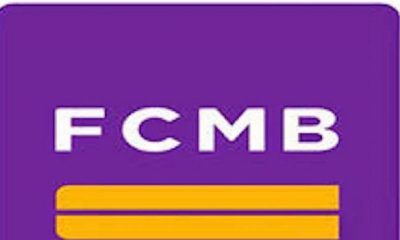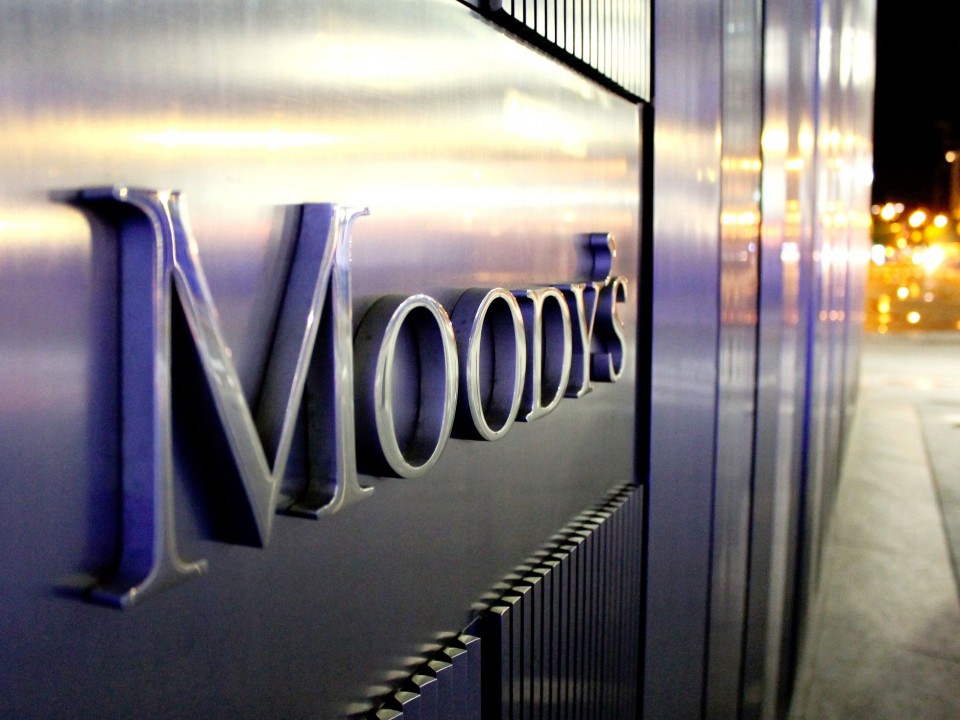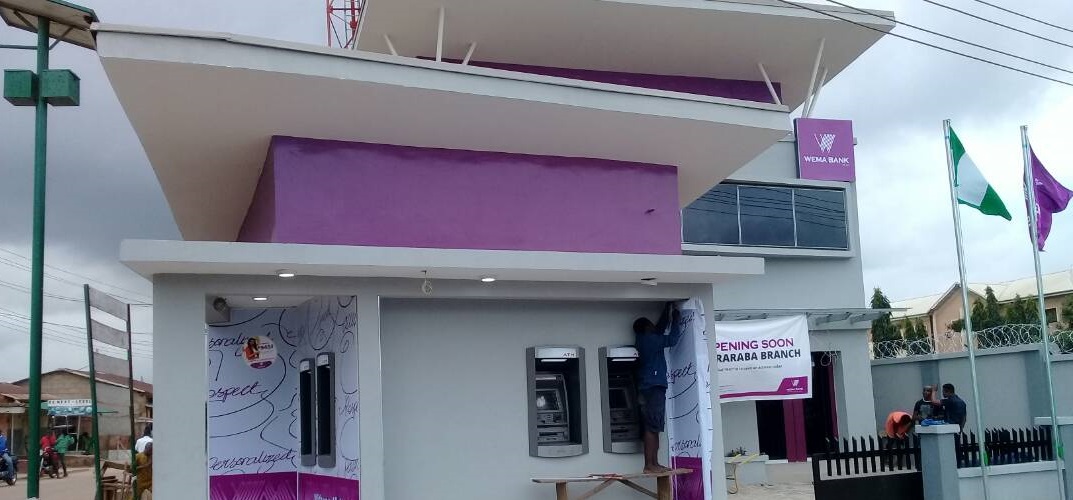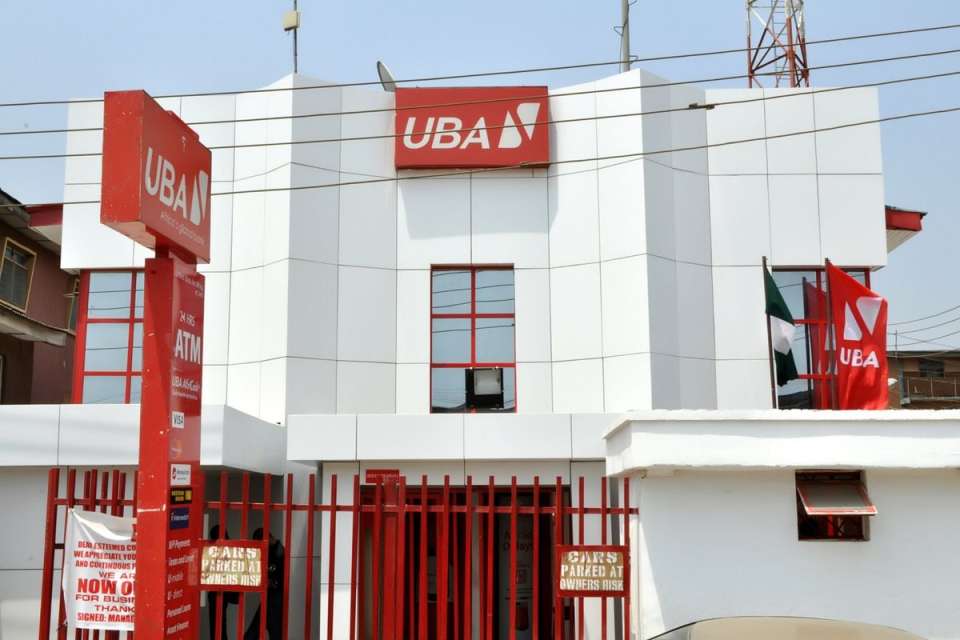Banking
GCR Affirms AA-(NG) Rating on UBA With Stable Outlook
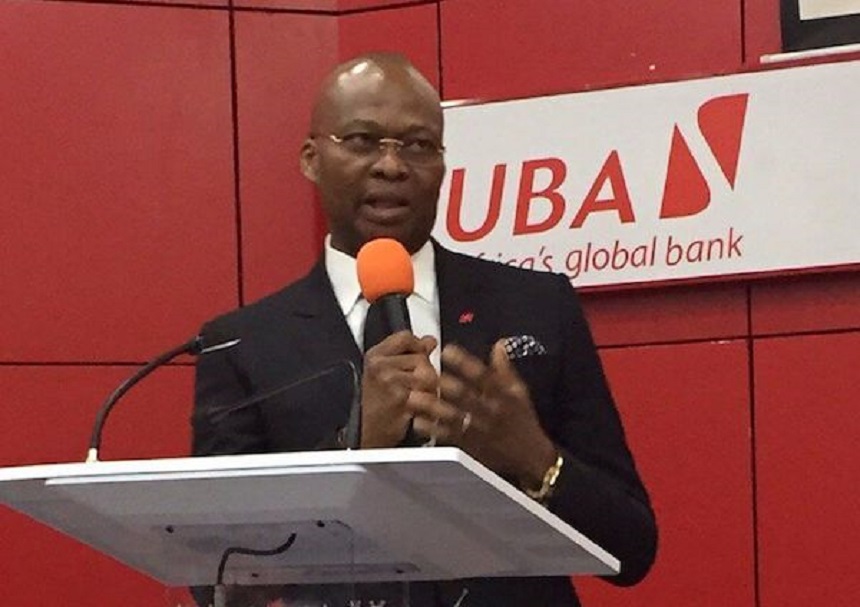
By Modupe Gbadeyanka
The national scale ratings of AA-(NG) and A1+(NG) in the long and short term respectively assigned to United Bank for Africa (UBA) have been affirmed by Global Credit Ratings (GCR).
The Nigeria-based rating agency, in a statement, disclosed that it also affirmed the long term international scale rating of B+ assigned to the lender with the outlook accorded as stable.
However, GCR stressed that downward ratings movement may emanate from a significant deterioration in asset quality, liquidity, capital and profitability metrics, noting that the international scale rating will be sensitive to changes in the sovereign rating of Nigeria.
In the statement, GCR explained that UBA’s ratings reflect its established franchise, significant domestic market share (being one of the top-tier banks in Nigeria) and status as a systemically important bank.
It added that further rating support was derived from the bank’s risk appropriate capitalisation, comfortable liquidity, as well as geographic and earnings diversification, with operations in 20 African countries and offices in three global financial centres (London, Paris and New York).
UBA’s capitalisation is considered satisfactory for the current risk level, with a risk weighted capital adequacy ratio of 20 percent and 18.4 percent at FY17 and 3Q FY18 respectively, above the regulatory minimum of 15 percent.
Supported by strong internal capital generation, shareholders’ funds grew consistently over the years and stood at N529.4 billion at FY17, representing a compounded annual growth rate of 22.5 percent over a five-year review period.
The gross non-performing loans (NPL) almost doubled (rising by 89.8 percent) to N114.8 billion at FY17, largely impacted by the downgrade of a single large exposure, underpinning the gross NPL ratio rise to 6.7 percent at FY17, from 3.9 percent at FY16.
According to management, remedial action on the loan has commenced and recovery prospects are considered high. Specific provision coverage of impaired loans stood at 22.0 percent at FY17 (FY16: 36.0 percent).
Consequently, capital value at risk (NPLs net of provisions to capital) was a higher 9.7 percent at FY17 (FY16: 1.9 percent). At 3Q FY18, the NPL ratio stood at 7.2 percent.
“Although the contractual and behavioural mismatch of assets and liabilities in FY17 reflected a liquidity gap of N1,631.7 billion and N712.7 billion respectively within the critical ‘less than one-month’ maturity bucket (equivalent to 3.1x and 1.3x of shareholders’ funds respectively), liquidity risk is mitigated through maintaining a sizeable portion of liquid assets.
“The bank’s liquidity profile is further supported by $500 million Eurobond facility raised during the year, as well as available credit lines from other financial institutions.
“UBA’s statutory liquidity ratio ranged between 33.8 percent and 55.5 percent in FY17, against the regulatory minimum of 30 percent,” the rating agency said.
In 2017 financial year, UBA reported a pre-tax profit of N105.3 billion, representing a 16.1 percent year-on-year growth. While net interest income was largely supported by improved investment yields and funding costs, non-interest income was driven by increase in transaction related income and foreign exchange gains.
Operating expenses rose by 23.7 percent on the back of increase in staff costs, IT and other administrative expenses, resulting in a cost to income ratio of 57.8 percent at FY17 (FY16: 56.3 percent).
Overall, the return on average equity and assets stood at 16.6 percent (FY16: 19.0 percent) and 2.1 percent (FY16: 2.3 percent) respectively in FY17.
In 3Q FY18, the bank delivered a pre-tax profit of N79.1 billion, comparing favourably with the corresponding period in FY17 and in line with budget on annualised basis.
Substantially improved asset quality, positive earnings profitability, and capitalisation metrics, as well as further enhancement of geographic and earnings diversification benefits, would be positively considered.
Banking
All Set for Second HerFidelity Apprenticeship Programme

By Modupe Gbadeyanka
Registration for the second HerFidelity Apprenticeship Programme (HAP 2.0) organised by Fidelity Bank Plc has commenced.
The Divisional Head of Product Development at Fidelity Bank, Mr Osita Ede, informed newsmen that the initiative was designed to empower women with sustainable entrepreneurship skills.
The lender created the flagship women-empowerment initiative to equip women with practical, income‑generating skills and structured pathways to entrepreneurship.
“HerFidelity Apprenticeship Programme 2.0 reflects our commitment to continuous improvement. Having evaluated feedback from the first edition, we have returned with stronger partnerships and deeper mentorship programmes to ensure that women acquire not just skills, but sustainable economic opportunities,” he said.
“At the heart of the programme is guided, real‑world learning. Participants will undergo intensive apprenticeship training under reputable institutions and industry experts across select fields such as hair styling, shoe making, auto mechatronics, and interior decoration,” Mr Ede added.
He noted that HerFidelity Apprenticeship Programme 2.0 goes beyond skills acquisition by offering participants a wide range of business advisory services. These include business and financial literacy training, mentorship support throughout the apprenticeship journey, access to Fidelity Bank’s women‑focused and SME financial solutions, as well as guidance on business formalisation and growth strategies.
Further emphasising the bank’s vision, Mr Ede said, “By integrating structured mentorship with entrepreneurial development, Fidelity Bank is positioning women not just as trainees, but as future employers, innovators, and economic contributors within their communities. This aligns with our mandate to help individuals grow, businesses thrive, and economies prosper.”
Banking
The Alternative Bank Opens New Branch in Ondo

By Modupe Gbadeyanka
A new branch of The Alternative Bank (AltBank) has been opened in Ondo State as part of the expansion drive of the financial institution.
A statement from the company disclosed that the new branch would support export-oriented agribusinesses through Letters of Credit and commodity-backed trade finance, ensuring that local producers can scale beyond state borders.
For SMEs, the bank is introducing robust payment rails, asset financing for equipment and inventory, and supply chain-backed facilities that strengthen working capital without trapping businesses in interest-based debt cycles.
The Governor of Ondo State, Mr Lucky Aiyedatiwa, represented by his Chief of
Staff, Mr Olusegun Omojuwa, at the commissioning of the branch, underscored the importance of financial institutions in economic development.
“The pivotal role of financial institutions to economic growth and development of any economy cannot be overemphasised. It provides access to capital, supporting small and medium-scale enterprises and encouraging savings.
“Therefore, I have no doubt in my mind that the presence of The Alternative Bank in Ondo State will deepen financial services, create employment opportunities and stimulate economic activities across various sectors,” he said.
In her remarks, the Executive Director for Commercial and Institutional Banking (Lagos and South West) at The Alternative Bank, Mrs Korede Demola-Adeniyi, commended the state government’s leadership and outlined the lender’s long-term vision for Ondo State.
“As Ondo State steps into its next fifty years, and into the future anchored on the sustainable development championed during the recent anniversary celebrations, The Alternative Bank is here to be the financial engine for that vision. We didn’t come to Akure to hang banners. We came to fund work, farms, shops, and factories.”
With Ondo State’s economy anchored largely on agriculture, particularly cocoa production, poultry farming, and other cash crops, alongside a growing SME and trade ecosystem, AltBank is deploying sector-specific financing solutions tailored to these strengths.
For cocoa aggregators, processors and poultry operators, the bank will provide production financing, facility expansion support, machinery lease structures, and structured trade facilities under its joint venture and cost-plus financing models, with transaction cycles of up to 180 days for commodity trades and longer-term structured asset financing for equipment and infrastructure.
The organisation is a notable national non-interest bank with a physical network now surpassing 170 locations, deploying capital to solve real-world challenges through initiatives such as the Mata Zalla project, which saw to the training of hundreds of women as electric tricycle drivers and mechanics.
Banking
Recapitalisation: 20 Nigerian Banks Now Fully Compliant—Cardoso

By Adedapo Adesanya
The Governor of the Central Bank of Nigeria (CBN), Mr Yemi Cardoso, announced on Tuesday that the country’s banking sector is making strong progress in the recapitalisation drive, with 20 banks now fully compliant.
Mr Cardoso disclosed this during a press conference at the first Monetary Policy Committee (MPC) meeting of 2026, where he also highlighted positive developments in the nation’s foreign reserves.
On March 28, 2024, the apex bank announced an increase in the minimum capital requirements for commercial banks with international licences to N500 billion.
National and regional financial institutions’ capital bases were pegged at N200 billion and N50 billion, respectively.
Also, CBN raised the merchant bank minimum capital requirement to N50 billion for national licence holders.
The banking regulator said the new capital base for national and regional non-interest banks is N20 billion and N10 billion, respectively.
To meet the minimum capital requirements, CBN advised banks to consider the injection of “fresh equity capital through private placements, rights issue and/or offer for subscription”.
Following the development, several banks announced plans to raise funds through share and bond issuances.
In January, Zenith Bank said it had raised N350.46 billion through rights issue and public offer to meet the CBN minimum capital requirement.
Guaranty Trust Holding Company Plc (GTCO), on July 4, said it had successfully priced its fully marketed offering on the London Stock Exchange (LSE).
In September, the CBN governor said 14 banks fully met their recapitalisation requirements — up from eight banks in July.
With one month to the central bank’s March 31, 2026, recapitalisation deadline, 13 Nigerian lenders are yet to cross the finish line.
Additionally, the governor noted that 33 banks have raised funds as part of the ongoing recapitalisation exercise, signalling robust capital mobilisation across the sector.
He stated that gross foreign reserves have climbed to a 13-year high of $50.4 billion as of mid-February 2026.
-

 Feature/OPED6 years ago
Feature/OPED6 years agoDavos was Different this year
-
Travel/Tourism10 years ago
Lagos Seals Western Lodge Hotel In Ikorodu
-

 Showbiz3 years ago
Showbiz3 years agoEstranged Lover Releases Videos of Empress Njamah Bathing
-

 Banking8 years ago
Banking8 years agoSort Codes of GTBank Branches in Nigeria
-

 Economy3 years ago
Economy3 years agoSubsidy Removal: CNG at N130 Per Litre Cheaper Than Petrol—IPMAN
-

 Banking3 years ago
Banking3 years agoSort Codes of UBA Branches in Nigeria
-

 Banking3 years ago
Banking3 years agoFirst Bank Announces Planned Downtime
-

 Sports3 years ago
Sports3 years agoHighest Paid Nigerian Footballer – How Much Do Nigerian Footballers Earn



